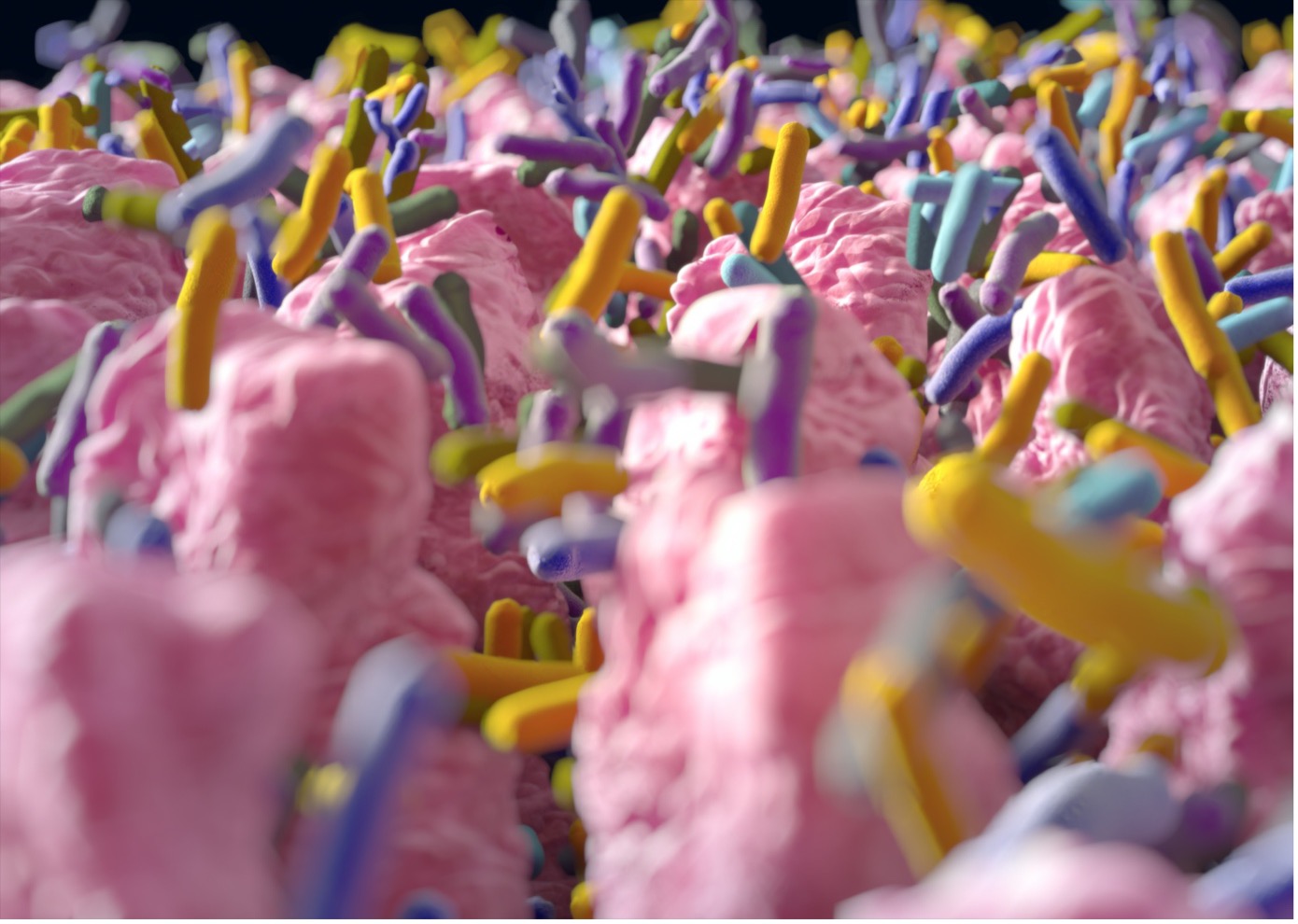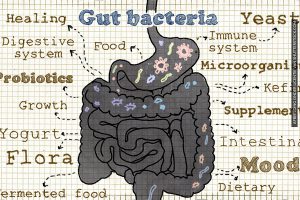A ‘fingerprint’ in the gut
We at BodySwitch receive many emails daily with questions about bowel issues. You probably recognize it.
“I really eat a lot of fruits and vegetables but still I have a stomach ache all the time. How can that be?”
“What do my bowels have to do with my fatigue?”
“Can the gut indeed improve my immune system?”
BodySwitch is an expert network of and for highly trained physicians and therapists in chronic health. For 10 years we have shared our knowledge and insights among ourselves to make people aware of the cause of their persistent complaints and help them deal with them. Happy to share their knowledge in this blog to provide answers to all your questions about the gut.
In the Netherlands, more than 20 percent of the population struggles with some form of intestinal problems. And while we cannot lump the causes together, an imbalance of intestinal flora plays a crucial role in almost all cases
Why is the balance in my gut disturbed?
The following factors can contribute to disrupted gut flora.
- An overall unhealthy diet
- Low fiber diet
- Infection and disease
- Physical and psychological stress
- Operations
- Medicines (including antibiotics)
- Radiation, chemotherapy
- Sugars
What exactly do gut bacteria do for our health?
To protect the body, we have about 50 million immune cells that destroy harmful viruses, fungi and bacteria: our immune system. The microscopic colonists really are everywhere: on your skin, in your lungs, in your genitals. With an area of more than 400 m2, our gastrointestinal tract houses the largest number of microorganisms within our system: about 80% of them are located in our intestines.
Gut bacteria strengthen our immune system. With that, the intestines are the first and most important barrier our body puts up against unwanted invaders. Constantly there is something going on in the intestines, between immune cells and good and bad bacteria. Usually this goes silently, sometimes it causes a problem. As in Crohn’s disease where the immune system attacks harmless gut bacteria unnecessarily.
Gut flora also aids in digestion: bacteria break down indigestible plant fibers, releasing substances that nourish intestinal cells and can, for example, inhibit inflammation.
The gut flora produces important substances. For example, vitamin K, essential for blood clotting. And it stimulates the secretion of the hormone serotonin, which affects memory, mood and emotion. Vitamins such as B1, B6, B12, folic acid and biotin are also made there.
In doing so, it helps to develop certain fatty acids for the intestinal wall, and to reduce food allergies. Acidity is kept low in the intestines, reducing the ability of “bad” bacteria to function.
Research on gut bacteria is hot and yielding promising results.
“What is certain is that our gut flora is threefold worth exploring,” as Dr. Daisy Jonkers, associate professor at Maastricht UMC+’s Stomach, Intestinal and Liver Diseases, agrees, “The gut flora has been a black box for a very long time.
‘We can see more and more clearly which gut bacteria are important in healthy people and which gut bacteria are prevalent in diseases. Recently, we have been particularly interested in bacterial combinations and their function. The gut flora has long been a black box, but by now there is clear evidence that certain bacterial combinations are involved in the development of disease and, in some situations, in the course of disease. A good example is a complex condition like Crohn’s disease, a chronic inflammatory bowel disease that can be in remission for a while only to suddenly flare up again. We discovered here in Maastricht that a certain bacterial composition in the stool of people suffering from that disease predicts whether there is a period of disease activity. This is an important discovery, also because it can mean a lot to patients.”
I often hear about the microbiome. What is the microbiome?
People talk about the flora of the intestines. But actually it’s about critters, not plants. Single-celled microorganisms that are in you by the billions. Scientists today therefore prefer to use the term microbiome or gut microbiome.
The microbiome is your own fingerprint in the gut
The gut bacteria differentiate into hundreds of different species that are also not the same in everyone. Each person is host to their own highly personal ecosystem. An individually constituted microbiome is as unique as our fingerprint. The composition of our microbiome is partly evolutionary: Japanese, for example, have gut bacteria capable of breaking down seaweed. We Europeans are missing those.
So by studying our gut bacteria, researchers can learn a lot about us: whether we are young or old, fat or thin, African or European
The gut microbiome is the umbrella term for all microorganisms found in the gastrointestinal tract. Therefore, a healthy gut flora is synonymous with good health. If the gut surface is balanced then it has a positive impact on our immune system, mood, prevention of inflammation and prevention of various serious diseases. Within our first-line immune system, the gut forms a strong barrier against outside pathogens.
What causes intestinal imbalance?
The intestinal wall consists of a mucosal layer made up of intestinal cells stuck together by so-called tight junctions. Gut flora protects the mucosal layer of the intestines.
Unfortunately, we take moderate care of our gut health. Among other things, consuming bad food brings in unwanted bacteria that disrupt the intestinal flora and cause intestinal problems.
With disturbed flora, empty spaces form on the intestinal wall, giving harmful bacteria a chance to multiply and damage our intestinal wall.
Disturbed gut flora causes intestinal problems. Diarrhea, hard stools, constipation, abdominal pain, flatulence, bloating and persistent fatigue; all of these are ailments that we classify under the heading of intestinal complaints.
What to do when your gut flora is disrupted?
As you have read, the gut environment consists of trillions of bacteria and also an incredibly large number of fungi. Intestinal flora can become disturbed for a variety of reasons. You can recognize an upset gut flora by several symptoms. The most common symptoms of an upset gut flora can generally be fairly harmless, but can cause discomfort. These include bloating, constipation and flatulence. Less innocuous complaints are also among the symptoms of restless bowels.
If you suffer from poor bowel movements or a less than optimal metabolism, it is advisable to take a closer look at your gut flora! The BodySwitch specialists can advise you and research your gut flora. If you also want to learn more about your fingerprint in the gut, sign up (without obligation) on our website at www.bodyswitch.nl.
BodySwitch is an expert network of and for highly trained physicians and therapists in chronic health. For 10 years we have shared our knowledge and insights among ourselves to make people aware of the cause of their persistent complaints and help them deal with them. All of our specialists are affiliated with the MBOG, the professional & advocacy association in orthomolecular medicine.
MBOG represents the interests of some 600 health care providers who work together to improve health for their clients. Members are physicians, paramedics and health care providers. They use many scientific disciplines such as DNA testing, psychotherapy and neuroimmunology (PNI), colon therapy, lifestyle & nutritional medicine and orthomolecular medicine.
The quality seal of the MBOG and our BodySwitch network are of great importance to both the client seeking information and to our practices. Together we keep orthomolecular medicine moving forward!
Our goal is for natural medicine to become as accessible as mainstream medicine. We have already achieved much, but we also see that man’s natural ability to recover may be put to work even more.


